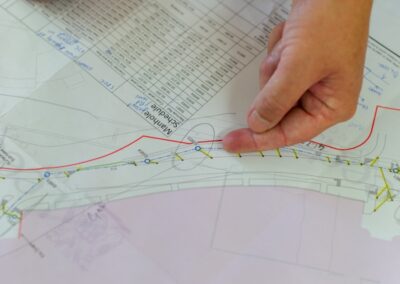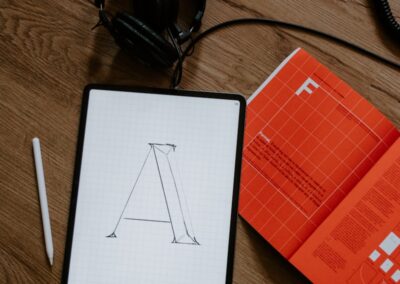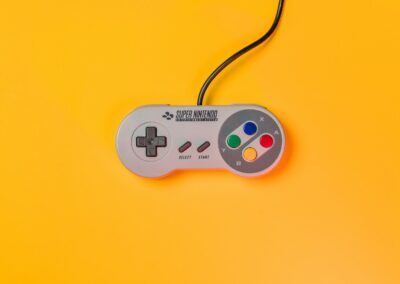Leveraging Educational Games for Enhanced Learning
Transforming Education through Gamification
The rise of educational games and simulations has revolutionized the landscape of modern education. By incorporating elements of gamification, educators in Saudi Arabia and the UAE are witnessing a significant increase in student engagement and academic performance. Research and case studies have consistently shown that educational games can create interactive and immersive learning environments that foster a deeper understanding of complex subjects.
In Riyadh, schools have adopted gamified learning platforms to teach STEM (Science, Technology, Engineering, and Mathematics) subjects. These platforms utilize game mechanics such as points, leaderboards, and rewards to motivate students. For instance, a mathematics game might present problems as challenges to be solved to progress through levels. This approach not only makes learning fun but also encourages students to develop problem-solving skills and persistence.
Dubai’s educational institutions are also leading the way in integrating educational games into their curricula. Schools are using simulations to teach history and social studies, where students can experience historical events and make decisions that affect the outcomes. These simulations provide a safe space for students to explore different scenarios and learn from their mistakes, leading to better retention of information and improved critical thinking skills.
Artificial Intelligence in Educational Games
Artificial Intelligence (AI) plays a crucial role in the development and implementation of educational games. AI algorithms can tailor educational content to the individual needs of each student, ensuring personalized learning experiences. In Saudi Arabia, AI-driven educational games analyze students’ performance and adapt the difficulty level accordingly, providing a customized learning path that keeps students challenged and engaged.
AI also offers real-time feedback, helping students understand their mistakes and learn from them immediately. This instant feedback loop is essential for effective learning, as it reinforces concepts and corrects misunderstandings promptly. Schools in Riyadh are using AI-powered games to provide personalized tutoring in subjects like language arts and mathematics, resulting in higher academic performance and greater student satisfaction.
Moreover, AI enhances the interactivity of educational games by enabling natural language processing and voice recognition. This technology allows students to interact with the game through voice commands, making the learning experience more engaging and accessible. In Dubai, AI-driven language learning games are helping students improve their proficiency in English and Arabic, contributing to their overall academic success.
Blockchain and The Metaverse in Education
Blockchain technology and The Metaverse are poised to further transform educational games and simulations. Blockchain ensures the security and transparency of student records, making it easier to track and verify academic achievements. In the UAE, educational institutions are exploring blockchain-based systems to create tamper-proof digital certificates and transcripts, which can be used to validate the outcomes of gamified learning experiences.
The Metaverse, a collective virtual shared space created by the convergence of virtually enhanced physical reality and physically persistent virtual reality, offers exciting possibilities for education. In Dubai, schools are developing virtual classrooms within The Metaverse, where students can participate in immersive learning experiences. These virtual environments enable students to collaborate with peers globally, access a wealth of resources, and engage in interactive simulations that enhance their understanding of various subjects.
In Saudi Arabia, The Metaverse is being used to create virtual science labs where students can conduct experiments and explore scientific concepts without the limitations of physical resources. This hands-on approach to learning not only makes science education more engaging but also helps students develop practical skills that are essential for their future careers.
Improving Academic Performance through Educational Games
Boosting Cognitive and Social Skills
Educational games have proven to be effective tools for enhancing cognitive and social skills. By presenting learning materials in a game format, students are more likely to stay engaged and retain information. In Riyadh, schools are using educational games to teach subjects like mathematics and science, where students can apply theoretical knowledge to solve real-world problems.
Research indicates that students who engage in educational games demonstrate better memory retention and problem-solving abilities. This is because games provide a multisensory learning experience that stimulates different parts of the brain. In Dubai, educational institutions are leveraging game-based learning to improve students’ performance in standardized tests, with notable success.
Moreover, educational games promote collaboration and communication among students. Multiplayer games, in particular, encourage teamwork and the development of social skills. In Saudi Arabia, group-based educational games are being used to foster a sense of community and enhance students’ interpersonal skills. These collaborative experiences not only improve academic performance but also prepare students for the collaborative nature of the modern workforce.
Generative AI and Adaptive Learning
Generative AI is revolutionizing educational games by creating adaptive learning environments that cater to the unique needs of each student. This technology generates personalized content and scenarios based on students’ progress and performance, ensuring that each learner receives a tailored educational experience. In Riyadh, schools are implementing generative AI to create customized learning modules that address the specific needs of their students.
Generative AI also enables the development of complex simulations that replicate real-world challenges. In Dubai, educational institutions are using AI-generated simulations to teach subjects like engineering and medicine, where students can practice their skills in a controlled, virtual environment. This hands-on approach to learning enhances understanding and prepares students for real-world applications.
Additionally, generative AI supports continuous assessment and feedback, helping educators identify and address learning gaps promptly. This ensures that students remain on track and achieve their academic goals. In the UAE, AI-driven platforms are being used to monitor students’ progress and provide targeted interventions, resulting in improved academic performance.
Executive Coaching and Leadership Development
Executive coaching services are also benefiting from the integration of educational games and generative AI. These technologies provide executives with immersive training experiences that enhance their leadership and management skills. In Saudi Arabia, executive coaching programs are using educational games to simulate real-world business scenarios, allowing leaders to practice decision-making and strategic planning in a risk-free environment.
Generative AI creates personalized coaching modules that address the specific needs of each executive. This tailored approach ensures that leaders receive the support and guidance they need to excel in their roles. In Riyadh, executive coaching services are leveraging AI to provide data-driven insights that help leaders develop their strengths and address their weaknesses.
Dubai is also at the forefront of using educational games for executive coaching. The city’s commitment to innovation and technology is reflected in its advanced coaching programs, which incorporate the latest developments in AI and game-based learning. These programs help executives stay ahead of industry trends and enhance their leadership capabilities, contributing to business success and growth.
Conclusion
The potential impacts of educational games on student engagement and academic performance are profound. By integrating technologies like AI, blockchain, and The Metaverse, educational institutions in Saudi Arabia and the UAE are transforming the learning experience. These innovations provide students with personalized, immersive, and interactive educational opportunities that enhance their cognitive skills and knowledge retention.
Furthermore, the integration of educational games into executive coaching services is revolutionizing leadership development. By providing executives with dynamic training environments, these technologies help leaders develop the skills they need to drive business success. As Saudi Arabia and the UAE continue to invest in educational technology, the future of learning looks promising, with educational games playing a pivotal role in shaping the next generation of skilled professionals.
#EducationalGames #StudentEngagement #AcademicPerformance #SaudiArabia #UAE #Riyadh #Dubai #ArtificialIntelligence #Blockchain #TheMetaverse #ExecutiveCoaching #GenerativeAI #ModernTechnology #BusinessSuccess #LeadershipSkills #ManagementSkills #ProjectManagement























